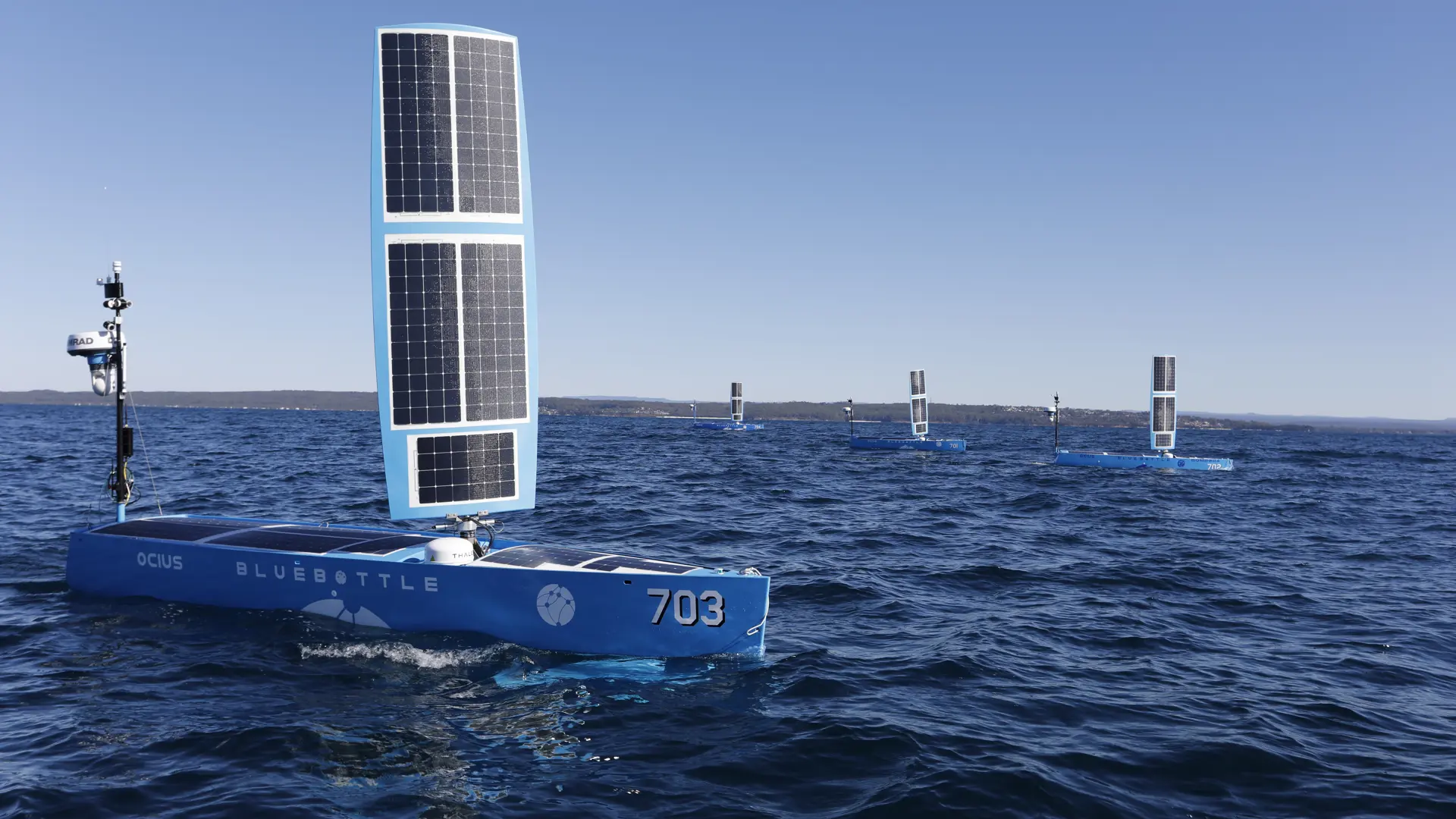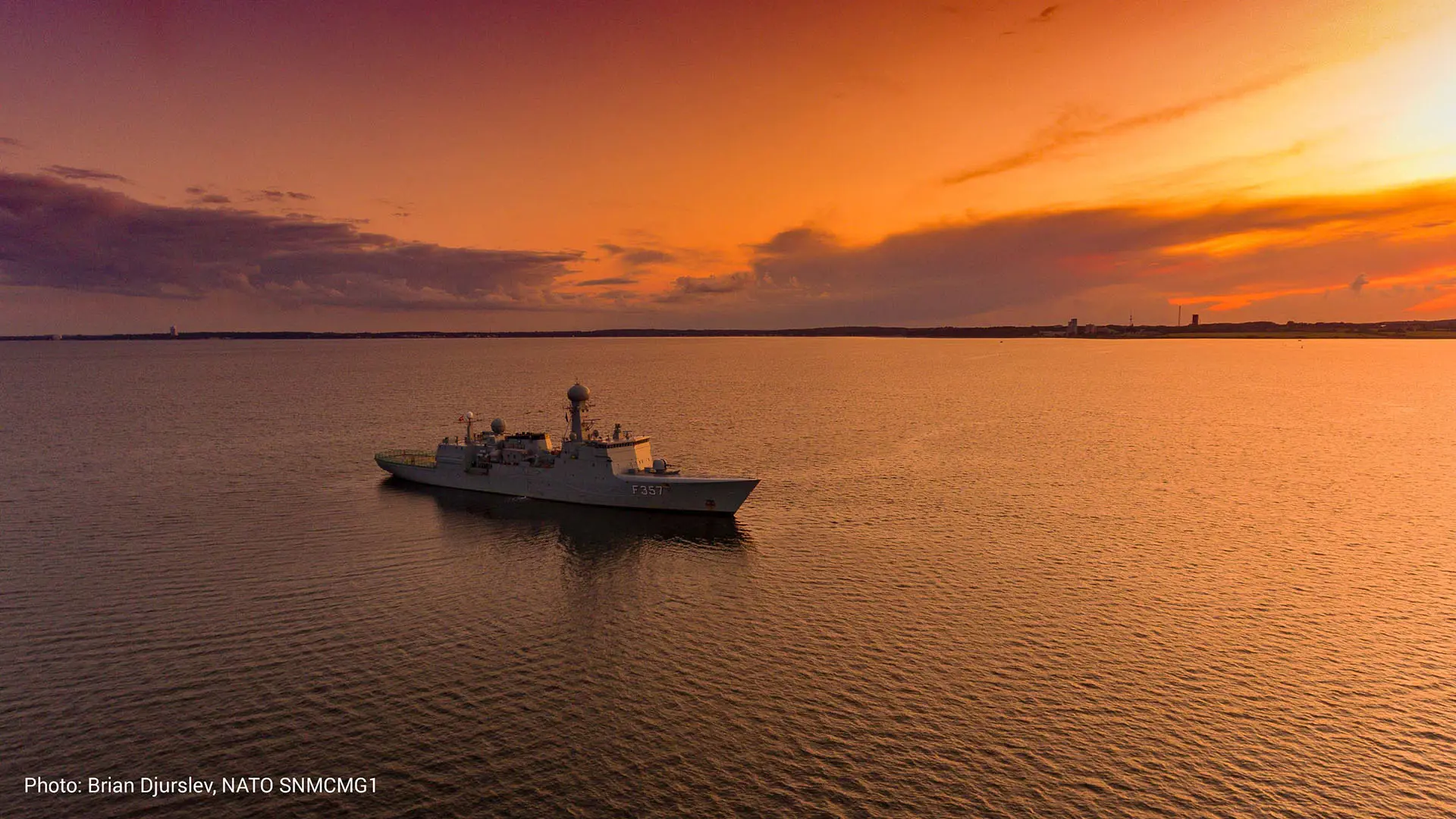Nord Stream leaks: Could AI provide the key to a preventative information advantage?
The recent images of vast areas of bubbling sea water off the coast of Denmark have sent shockwaves through Europe along with allegations of sabotage to the Nord Stream pipelines.
Four leaks in the major gas pipe that runs between Russia and Europe have been reported by the European Union as deliberate acts designed to destabilise energy supply.
Away from the political furore the leaks also pose a very real risk to shipping in the area near the Danish island of Bornholm, prompting a navigational warning and no-sail zone within five nautical miles.
Seismologists reported underwater blasts before the leaks emerged on Tuesday, while Denmark's Defence Command released footage of the bubbling areas - the largest is 1km (0.6 miles) in diameter - on the surface of the Baltic Sea. An investigation will begin once the escaping gas runs out – which Danish energy Minister Dan Jorgensen predicts will be in a week’s time.
While an unprecedented incident, key focus areas for investigators will be suspicious behaviour from vessels operating in the area – both surface and sub-surface, as well as the timing of the detection and speed of response.
As a country that prides itself on meeting stringent environmental credentials, this leak will be frustrating for Denmark, although its Energy Agency states that it is not expected to have consequences for the security of Danish gas supply.
Further attacks: The risk is real
Yet this is not the only energy system at risk – Denmark, along with many other global leaders - is also vastly increasing its offshore windfarm population. This is vital infrastructure that, in time, will decrease dependence on non-renewables such as gas.
If energy supply, and the control of it, is to become a new weapon then commodities such as this could also become a target for nefarious actors and countries must act quickly to offset these dangers.

Detecting anomalies and suspicious behaviours is a key part of early detection and provide an alert to authorities who can then set in motion a rapid response.
One of the key features of Systematic’s SitaWare Suite is such detection, using Artificial Intelligence to draw in data from a vast range of sources and flagging when a pattern of behaviour or normal circumstance changes.
Processing information faster than any human brain, the software can correlate current information with historical data such as vessel locations, characteristics and typical movements and then provide an alert to any anomalies.
Operating at speed this detection can then provide authorities with an information advantage – a critical asset when it comes to providing a speedy, well-informed response.
Systematic’s software is already in use in Denmark’s offshore windfarms, with the Royal Danish Navy, within militaries around the Baltic Sea and across the globe. By further integrating the interoperable systems to widen the situational awareness, the products can be used to meet this type of domestic threat, cascading information to a range of authorities with the potential to act.
The international condemnation of the suspected sabotage was fast and furious – and represents the lengths actors will go to in order to secure an advantage.
As warfare continues to expand beyond the traditional scope – harnessing off the shelf technology that uses AI to operate across all domains – is perhaps the only way for nations to truly increase their resilience.








